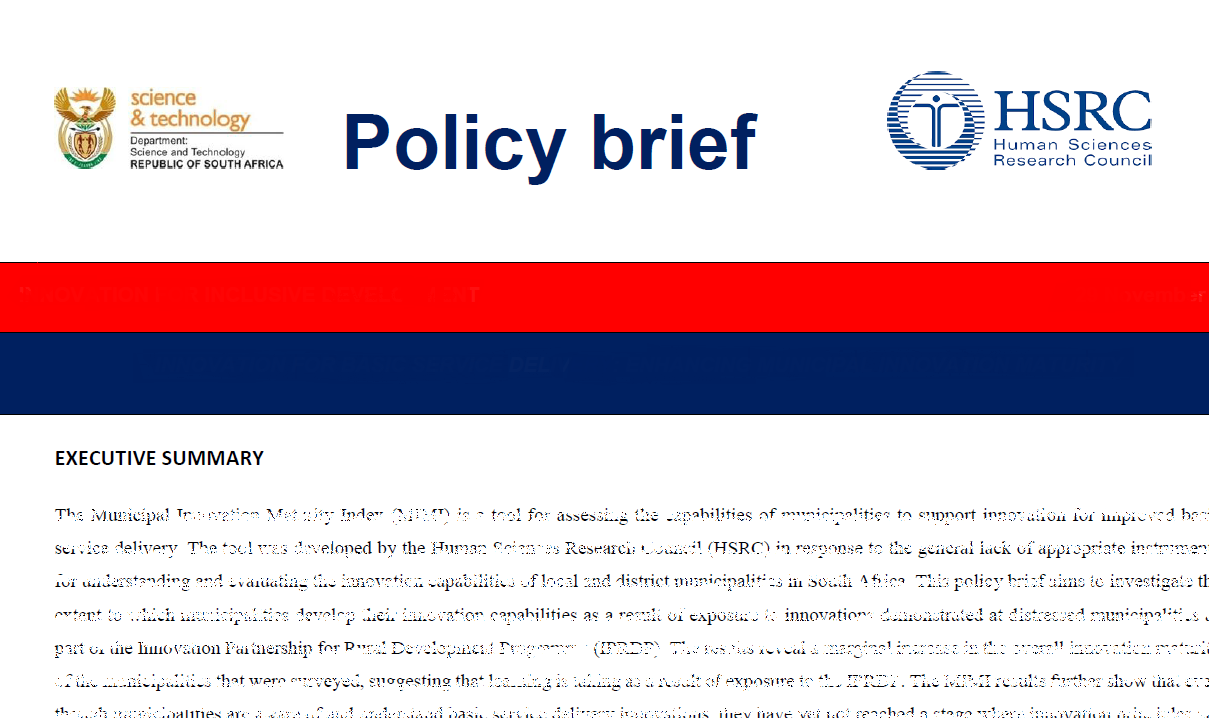Innovation for basic service delivery: The impact of point of use water filters

29 November 2018
DST, HSRC
English
Policy brief
Department of Science, Technology and Innovation
Africa
Although the South African government has made significant progress in improving access to basic services, i.e. water, sanitation and energy since the advent of democracy in 1994, huge backlogs persist especially in rural and informal communities. Many rural residents still lack access to safe potable water and therefore consume untreated water from dams or rivers that do cause certain illnesses. Through its Innovation Partnership for Rural Development Programme, the Department of Science and Technology has in partnership with science councils, universities and the private sector demonstrated point-of-use (POU) water filters in rural communities as an innovative way to deliver drinkable water to households. This policy brief explains what benefits have accrued for households which have received these POU filters.
More specifically, this brief reflects on whether or not this technology addresses relevant needs, the extent to which the technology is acceptable, and its impact on households’ access to clean water and their quality of life. Answering these questions is important in determining whether or not POU filters should be further rolled out or discontinued. The focus here shifts from issues of novelty, quality or scientific standards of the POU filters, towards practical concerns of their relevancy, acceptability, utility and value addition.

Comments